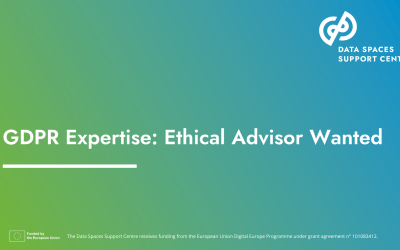The Hackatour FIDI 2020, a joint collaboration between FIWARE iHub Instituto Ciudades del Futuro (English: Cities of the Future) and FIWARE Foundation, took place in the context of the International Smart Destinations Fair 2020. The Hackatour was catered towards technological innovation as well as the creation of disruptive ideas using FIWARE technology.
From 20 to 29 November 2020 the International Smart Destinations Fair (FIDI) took place, a virtual event that welcomed over 30000 visitors from more than 50 countries, who observed new innovation and ideas in the development of the tourism and technological sectors.
Within this scenario, Instituto Ciudades del Futuro and FIWARE Foundation organized the Hackatour, an international level event with the aim of strengthening and supporting innovative IT ideas. The event, which gathered experts from across the world, sought to find solutions to the following challenges: the improvement of conservation heritage, an increase of efficiency in the promotion of touristic destinations, and provision of services for tourists and citizens.
The Hackatour received over 105 applications, with the winning team consisting of Federico Lavista, Verónica Uhrich, German Sandoval, and Tomas Gargiulo, from ORT University. Together, they presented the winning solution, the “Inspira” Project. “Inspira” is a security system for hotels that has the intention of alerting the users (ie. tourism authorities, hotel staff, and guests) in real-time about environmental changes and how they should proceed in relation to them (ie. temperature, humidity, gases, etc.)”, explains Federico Lavista, who together with the other members of his team, received an automatic certification as a FIWARE Expert and the possibility of implementing the pilot project together with FIWARE iHub Instituto Ciudades del Futuro from Argentina.
It should be noted that the FIWARE platform offers a curated framework of Open Source platform components with the possibility of assembling them together with other third-party platform components, thus building “smart solutions” in a fast, simple, and economical way. The FIWARE Foundation actively promotes the use of the platform, helping community users by offering shared resources. In relation to this, Veronica Uhrich points out that, “in general, creating Internet of Things (IoT) sounds like something complex and challenging that only specialized institutions can carry out in a functional and efficient way.” And she added, “the use of the FIWARE tool gave us not only the possibility of developing smart solutions like IoT systems but we were also able to do it in a fast and efficient way, which enabled us to focus on adding value to the product no matter its bases.”
The Hackatour took place in two stages. “Phase One”, which was not mandatory but its scoring was meaningful at the moment of its assessment, consisted of allowing access to open data in FIWARE. During “Phase Two”, using these resources, a solution addressing one of the challenges previously mentioned had to be developed.
With the aim of achieving technological innovation and disruptive ideas oriented towards efficient data management of destinations, Instituto Ciudades del Futuro and FIWARE Foundation have already announced the Second Edition of the Hackatour, an event which will again gather students and educational institutions, entrepreneurs and companies, tourism professionals, IT professionals and innovative designers, who will actively engage in the development of IT solutions-oriented to solve the challenges put forward for this competition.
Guest Blog Post by Instituto Ciudades del Futuro



